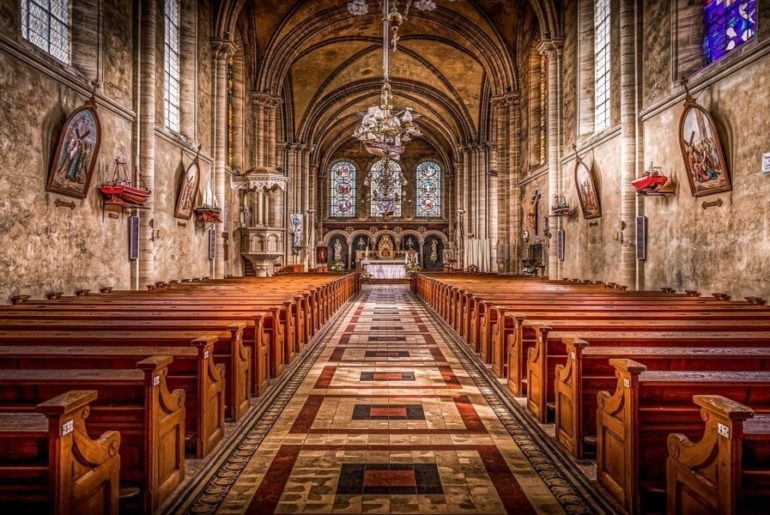The coronavirus pandemic has changed the way people experience their routine, and that includes religious practices. During the health crisis, churches and temples have been closed to avoid spreading the virus, and while hundreds of people nationwide have voiced their concern over the closures, there is one group that has been particularly impacted: the Latinx community.
Latinx in the United States have been known to be exceptionally devout to their religions. According to The Pew Research Center, at least 55 per cent Latino adults in the United States identify as Catholic and about 22% are Protestant.
However, trying to serve their communities while in lockdown has proven to be a real struggle for the churches.
Why Hispanics Churches Are Feeling the Pressure
“The last eight, 10 weeks has been a real tsunami, a disaster for us here, between sickness, death, unemployment and just lack of services for the undocumented,” Rev. Rick Beuther told The Associated Press.
Beuther, who serves a Catholic church in Queens, said that serving Hispanic communities has been especially hard during these times. For starters, Hispanics, along Blacks, have a higher rate of mortality when it comes to the coronavirus. Research shows, this is mainly because of the lack of resources in neighborhoods and the fact that many Latinos live in crowded households, which has “brought a lot of stress” to their community, Beuther said.
“It’s very hard for our community,” Rev. Fabián Arias, who works in the same Parish as Beuther, told The Associated Press. “For all Latinos, when our people die, they receive a blessing. We say the last goodbye and pray together. It’s very important for us.”
Arias also suggests that the migratory status of their congregation often plays a big role in receiving the care they need.
“Many of them are reluctant to go to the hospital, wondering will they get treated, will they get deported,” he said.
How Churches Are Helping Their Congregations
When the pandemic hit, churches stepped up to help their people. Many of them are now offering free testing, online guidance, workshops and more. Furthermore, churches have been vocal about the struggles that immigrants face, especially during the coronavirus crisis.
“As reflected in Catholic teachings, the right to life extends to life-saving protection and the right to seek safety and to care for one’s family,” a coalition of Catholic agencies wrote in a joint letter to the Department of Homeland Security. “During this global pandemic and national emergency, access to treatment and care for immigrants, including undocumented individuals, is critical to tracking and responding to the crisis. Removing barriers to testing and treatment not only saves lives but keeps all Americans safer.”
Creative Ways Churches Are Connecting With Their Communities
Nonetheless, churches have invented creative ways to be there for their congregation. From live masses to drive-in services, churches all over the country have adopted new ways of serving their community.
“The original idea was to do something for the kids of the parish,” Father Tim Pelc, who went viral after spraying his congregation with a toy gun filled with holy water, told BuzzFeed News.
“They were about ready to have an Easter unlike any of their past, so I thought, ‘what can we still do that would observe all the protocols of social distancing?’”
Pelc has become one of the latest church leaders to go viral for using the toy gun technique, with one priest even baptizing a baby using the creative method. And, even though he said he was surprised at the attention he has gotten online, he says he even got attention from the Vatican itself.
“It was big in Ukraine, and the Germans are funny — that led to a whole sub-discussion about the types of water pistols,” he added. “It even had two hits in the Vatican, which sort of concerned me, but I haven’t heard anything yet.”
But while some churches get creative in the way they communicate with their congregations, others have not been so inventive. Even before churches were allowed to start reopening, many of them refused to stop giving in person services in the first place, which in turn created a huge surge in preventable cases for their communities. For Arias, opening the churches to the public is not only dangerous, but it is actively against God’s will.
“It’s not what God would want,” he said. “God wants to protect life.”

